UNFPA cares for healthcare workers during coronavirus
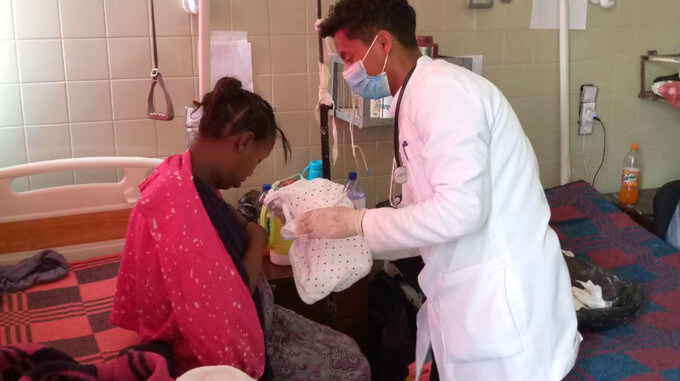
© Ethiopian Midwives Association
The COVID-19 pandemic has changed everyone’s lives, but it has left the elderly, pregnant women, and frontline healthcare workers especially vulnerable.
The ability of health professionals to stay well and care for others during these uncertain times will be the difference between lives lost or saved. But, COVID-19 and its consequences are non-discriminating. Even healthcare workers face supply and food shortages, gender-based violence, long days, emotional trauma, and sickness.
UNFPA, the United Nations reproductive health and rights agency, is helping to care for the people who care for all of us. Here are some of challenges that healthcare workers face and how UNFPA is supporting them:
Supply Shortages
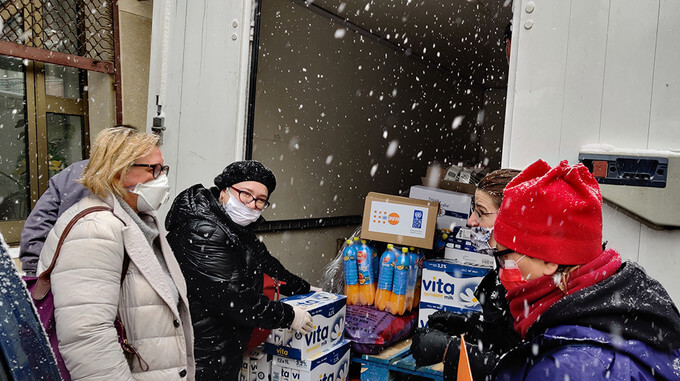
© UNFPA Kosovo/Besnik Sherifi
Women make up 70 percent of the world’s healthcare workforce, and that is not including the informal work that many women provide caring for sick family members.
This puts women at greater vulnerability for contracting COVID-19 than men. Ensuring that healthcare workers have adequate equipment to protect themselves and prevent the spread of coronavirus is crucial if we want to end the pandemic. UNFPA has been providing healthcare workers around the globe with personal protective equipment (PPE) and has been working with local and national governments, NGOs, and other UN agencies to minimize disruptions in global supply chains. PPE, contraceptives, menstrual hygiene products, adult diapers, and other items are necessary to ensure that healthcare workers’ needs are met.
Gender-based Violence
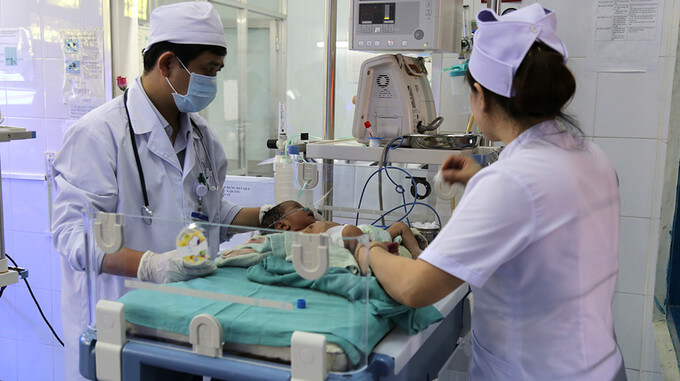
© UNFPA Viet Nam
During times of crisis, incidents of gender-based violence increase. The coronavirus pandemic is no different. Families are experiencing mental health stressors, threats to their physical wellbeing, economic pressures, and close quarters. All of these factors can contribute to rates of violence.
In Ukraine and Kosovo, UNFPA has seen reports of violence double. One counselor even saw a husband beat his wife during curfew hours. UNFPA has been working to increase support for domestic violence hotlines to ensure that anyone who needs help will be able to get it in the quickest and safest way possible.
Further, doctors, hotline workers, counselors, and other healthcare workers are not immune to gender-based violence. UNFPA works to ensure that their needs are met both as people caring for survivors and as survivors themselves.
Access to Family Planning
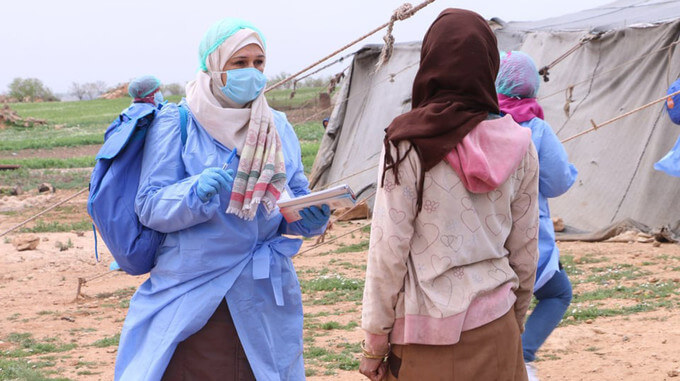
Coronavirus has limited the supply of contraceptives. Male and female condoms, oral birth control pills , injectable contraceptives, and intra-uterine devices are all in low stock. Restricted access to family planning means women are at risk for unwanted pregnancy, which can have dire ramifications for their health and futures.
UNFPA distributes over 1 billion condoms every year. However, the main condom manufacturer has reduced operations during the outbreak. Condom availability is important because it is one of the few contraceptives that prevent sexually transmitted diseases. Further, condoms provide a time-flexible solution to pregnancy prevention, do not require a doctor’s visit to be used, and are more accessible for adolescents who may be otherwise unable to receive care.
UNFPA works to ensure that healthcare workers are able to access the full range of family planning services for themselves and their patients.
Emotional Trauma
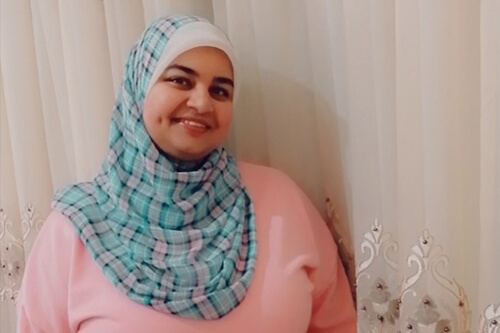
Image courtesy of Orouba Amin.
Even as healthcare workers care for patients who have been infected with COVID-19, have survived gender-based violence, or who require prenatal or delivery care, they need care themselves. They are also experiencing the emotional trauma of this moment and that of conflict zones or refugee camps. Seeing a patient or loved one die due to this disease is extremely difficult.
UNFPA is working to ensure that healthcare providers have access to psychosocial support during this difficult time. UNFPA staff are also distributing information on disease prevention, healthy coping mechanisms, and how to get help.
Long Work Days
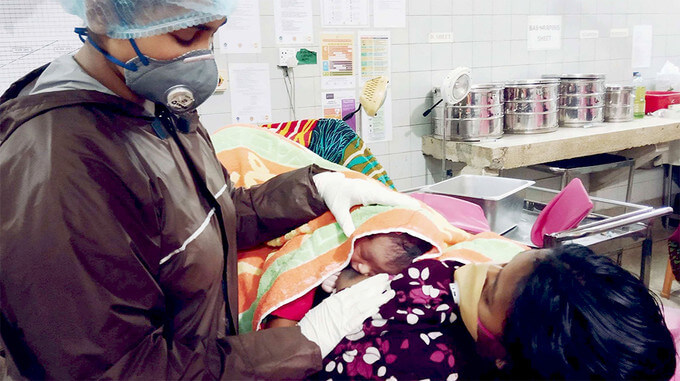
Image courtesy of Selina Akter.
Healthcare workers everywhere are working longer hours and are seeing more patients. It is more important than ever to support the people who care for all of us. In Yemen, healthcare workers are extremely strained. Most have worked irregular hours with little to no pay for years. Over 80 percent of the country relies on humanitarian assistance for essential items like food, healthcare, and shelter. UNFPA is working to secure extra supplies and health personnel to parts of the country.
In Rohingya refugee camps in Bangladesh before the pandemic, UNFPA created women-led safe spaces and community centers. Now, those spaces and the relationships they foster serve as important social supports.
We are all scared in this moment, but finding strength in our communities is the only way to overcome the pandemic. It is important to remember that healthcare workers face the same health risks –contracting coronavirus, experiencing GBV, and living through conflict or refugee situations – as the rest of us. UNFPA works to ensure that everyone has access to the lifesaving reproductive healthcare that is their right, no matter the circumstances.
-Dana Kirkegaard